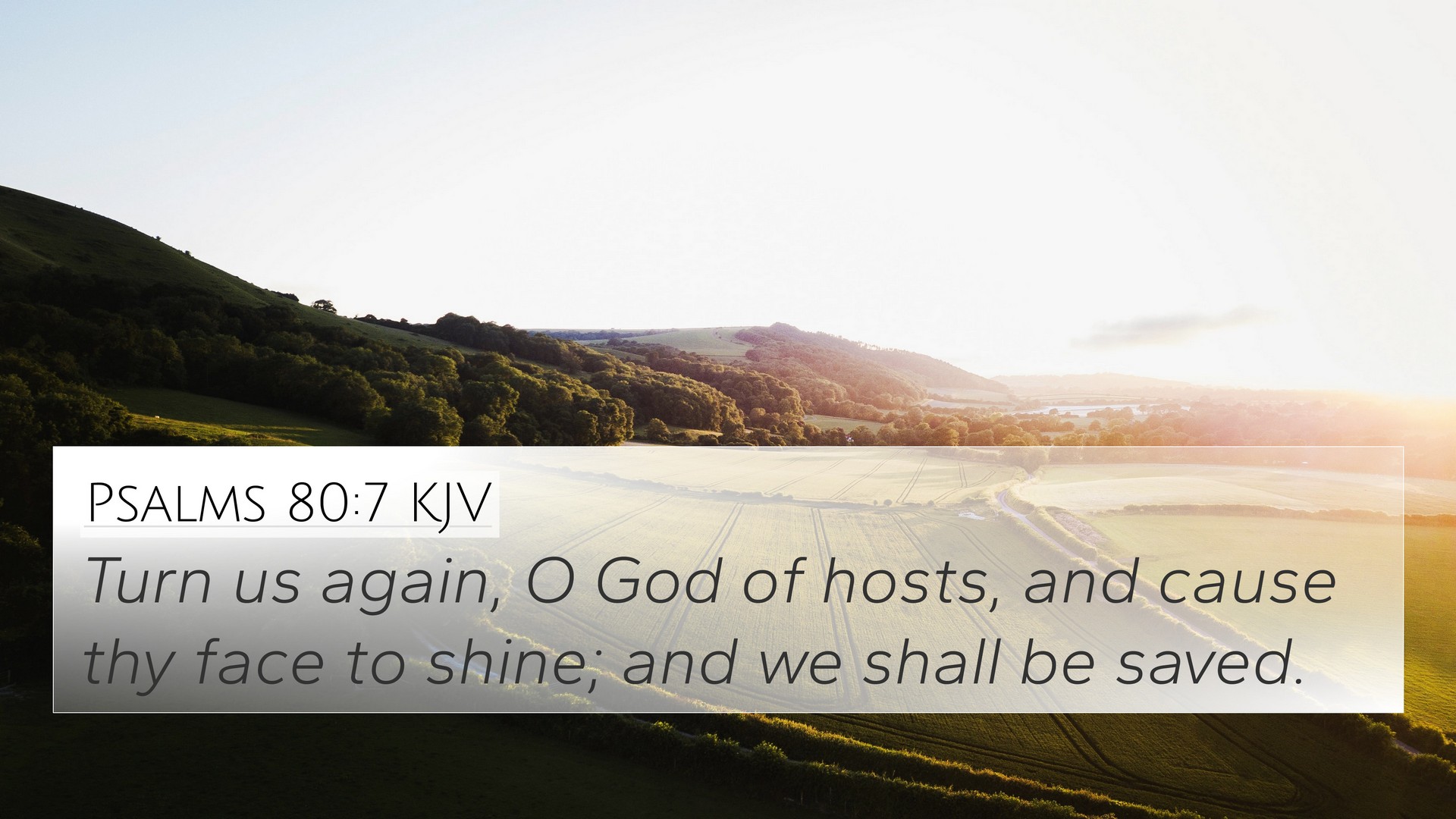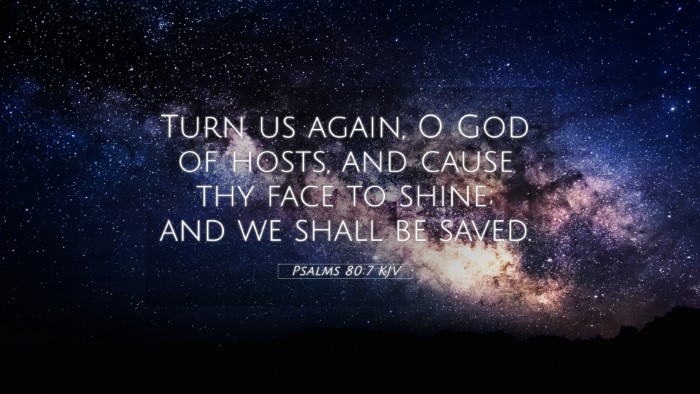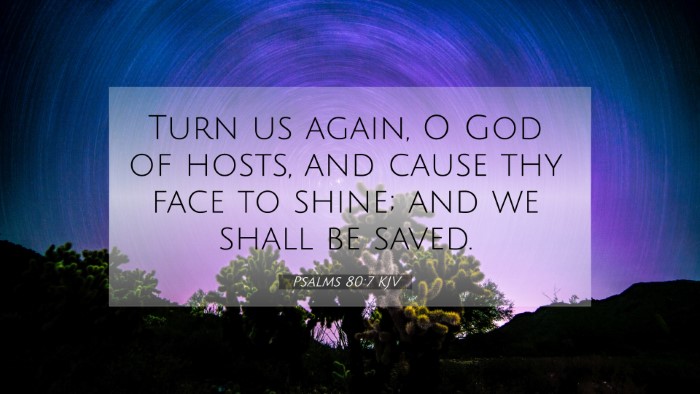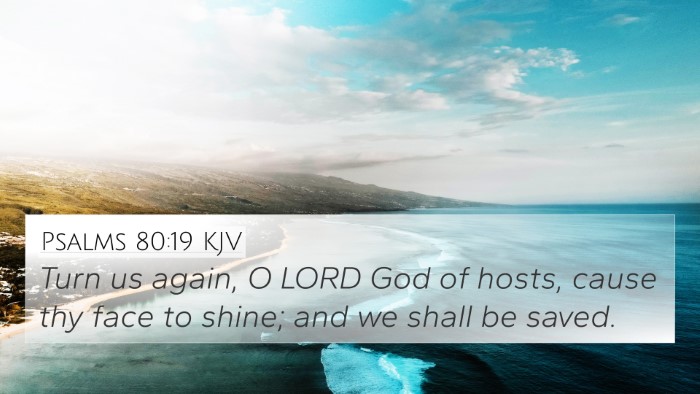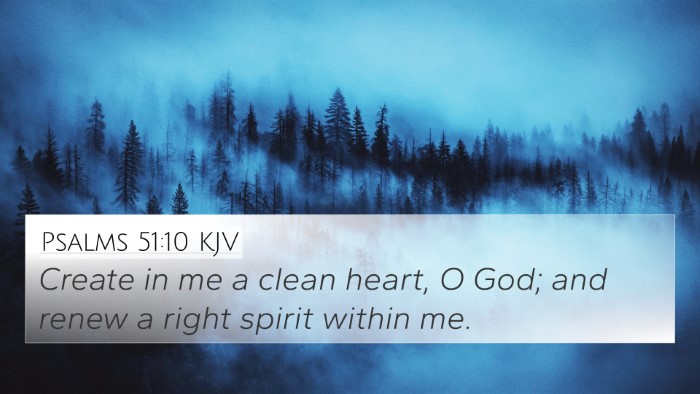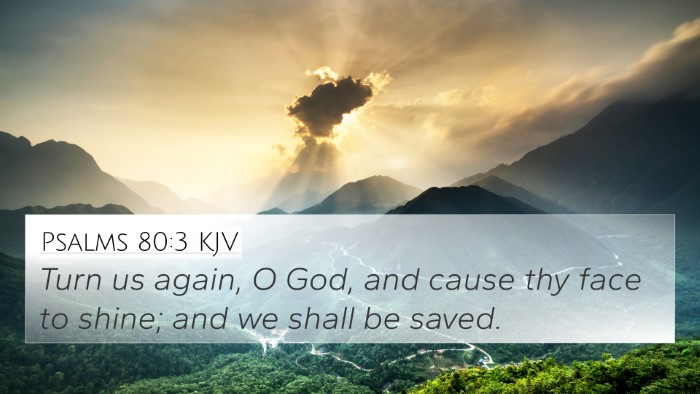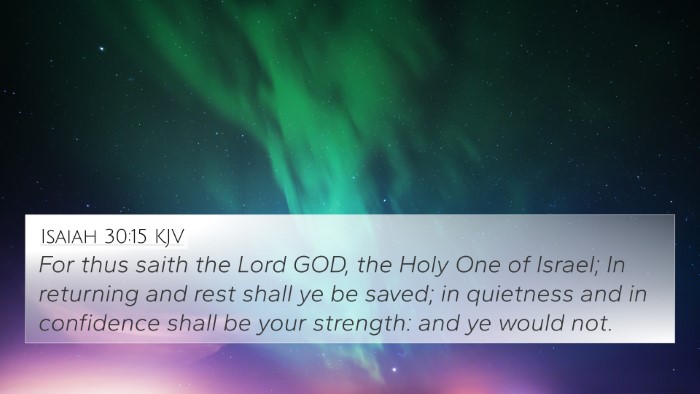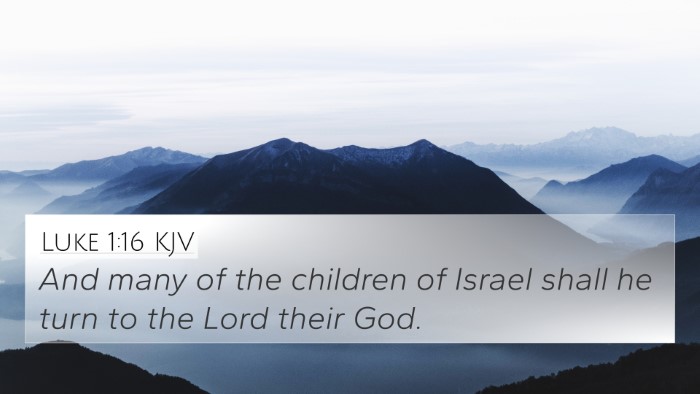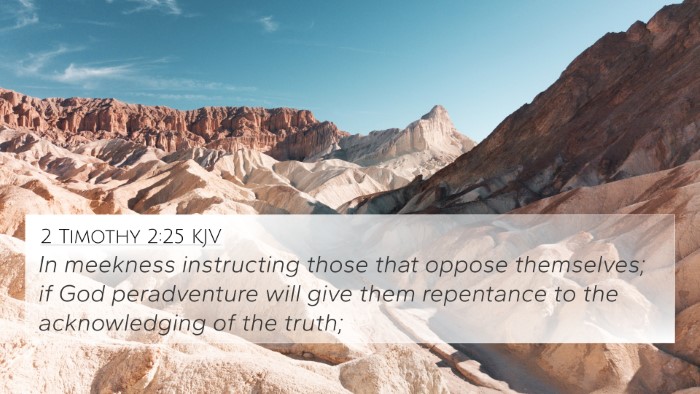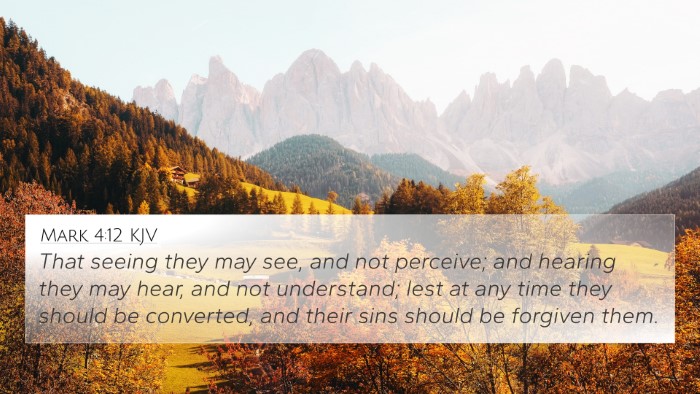Understanding Psalms 80:7
Bible Verse: Psalms 80:7 - "Turn us again, O God of hosts, and cause thy face to shine; and we shall be saved."
Explanation and Interpretation
This verse from the Book of Psalms is an earnest plea for God's restoration and salvation. It reflects a deep yearning for divine intervention and highlights the relationship between God and His people.
Insights from Public Domain Commentaries:
-
Matthew Henry:
Henry emphasizes the communal nature of the appeal, noting that the use of "us" signifies a collective recognition of sin and need for divine favor. God's "face" shining upon them symbolizes His blessings and care, suggesting that divine favor is crucial for their well-being and salvation.
-
Albert Barnes:
Barnes interprets the phrase "turn us again" as a request for God to restore His people from their backsliding. He stresses the importance of repentance and returning to God as prerequisites for receiving His grace and the saving power that follows when His face shines upon them.
-
Adam Clarke:
Clarke notes the significance of the term "God of hosts," highlighting God's omnipotence and His role as a leader of angelic forces. He argues that this reference reinforces the understanding that God has the capacity to deliver them from their troubles and restore the glory they once experienced.
Thematic Connections
Thematically, Psalms 80:7 speaks to the principles of repentance, divine restoration, and the necessity of God’s grace for salvation. It is profoundly connected to several other biblical verses that echo similar themes.
Cross-References Related to Psalms 80:7
- Numbers 6:25: "The LORD make his face shine upon you and be gracious to you." - A reminder of God's desire to bless His people.
- Isaiah 63:17: "O LORD, why do you make us wander from your ways and harden our hearts so that we do not revere you?" - A reflection on the longing for God’s guidance and favor.
- Lamentations 5:21: "Restore us to yourself, O Lord, that we may be restored; renew our days as of old." - A direct appeal to God for restoration similar to that in Psalms 80:7.
- Jeremiah 24:7: "I will give them a heart to know me, that I am the LORD; and they will be my people, and I will be their God, for they will return to me with all their heart." - Emphasizes returning to God for restoration.
- Matthew 11:28: "Come to me, all you who are weary and burdened, and I will give you rest." - God’s invitation to find solace and salvation in him.
- 2 Chronicles 7:14: "If my people, who are called by my name, will humble themselves and pray and seek my face and turn from their wicked ways, then I will hear from heaven..." - A call to humility and divine favor.
- Hebrews 4:16: "Let us then approach God's throne of grace with confidence, so that we may receive mercy and find grace to help us in our time of need." - Encouragement to seek God's grace boldly.
Connections between Bible Verses
Psalms 80:7 is not only a standalone verse but also is enriched by its connections with other scriptural texts. Understanding these connections can deepen one's comprehension of its significance. Here are a few methods of exploring these linking Bible scriptures:
- Bible Concordance: Utilize a concordance to find other verses that use key terms such as "turn," "face," and "salvation."
- Cross-Reference Bible Study: Engage in a Bible study that emphasizes these cross-referenced verses to see how the themes interact.
- Bible Chain References: Create chains of biblical references that lead from Psalms 80:7 through exploring themes of restoration and divine favor.
Tools for Bible Cross-Referencing
To facilitate deeper analysis of scriptures, it can be beneficial to employ various tools:
- Bible Cross-Reference Guide: Use guides designed to show connections between verses.
- Bible Reference Resources: Consider utilizing websites and applications that compile cross-references.
- Comprehensive Bible Cross-Reference Materials: Explore books or resources that systematically organize verses by theme or subject matter.
Conclusion
Psalms 80:7 embodies a powerful appeal for God’s restoration and recognition of collective need for divine grace. By engaging with it through cross-referencing and thematic connections, believers can enrich their understanding of the scripture and its relevance within both the Old and New Testaments.
